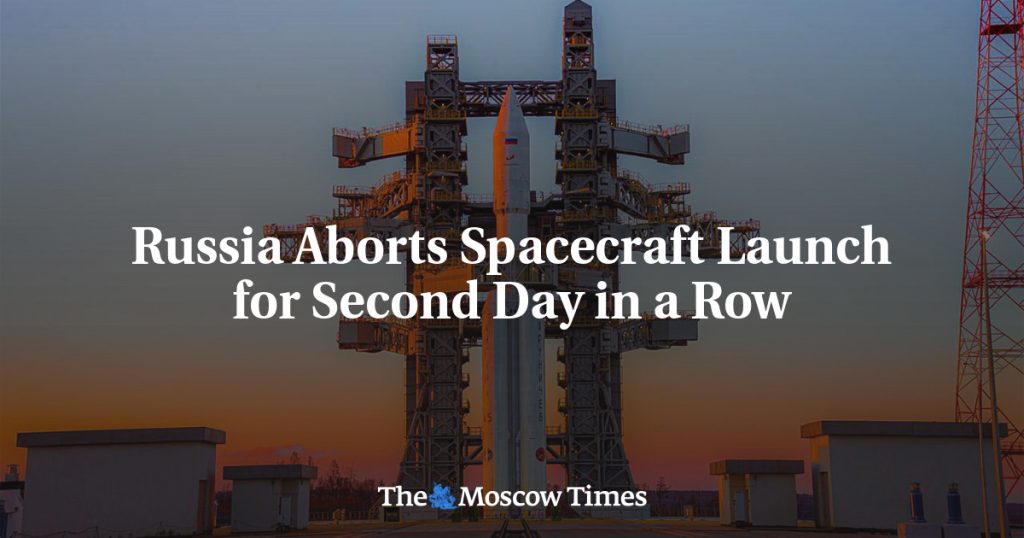Roscosmos, Russia’s space agency, called off the test launch of its Angara A5 space rocket for a second day in a row due to unknown reasons. The command to abort the launch was issued during a live broadcast, without a specific explanation for the delay. The rocket was expected to lift off from the Vostochny Cosmodrome in Far East Russia’s Amur region, marking a departure from previous launches based out of northern Russia’s Plesetsk Cosmodrome. Roscosmos head Yury Borisov cited malfunctions in the central power unit’s oxidizer tank as the reason for the initial aborted launch, rescheduling it for a later date.
President Vladimir Putin has emphasized the importance of the Angara rocket in national security, despite the project facing delays and technical setbacks. Roscosmos has highlighted the rocket’s eco-friendliness, particularly in terms of reduced environmental impact near launch sites and drop zones due to its use of non-toxic propellants. The Angara A5 was developed after the dissolution of the Soviet Union as a reliable alternative to the Proton launcher, ensuring Russia’s access to vital components independent of concerns about potential supply disruptions from Ukraine.
In a separate incident, the launch of a Russian Soyuz MS-25 spacecraft to the International Space Station was postponed at the Baikonur Cosmodrome in Kazakhstan due to a voltage dip in a chemical power source during pre-launch preparations. These technical issues reflect ongoing challenges faced by Russia’s space program, including financial difficulties, scandals, and corruption. However, the country continues to make efforts to advance its space technology and maintain its position as a key player in space exploration.
Despite the setbacks, Russia remains committed to its space program, with plans to resolve technical issues and improve launch processes. The Angara rocket, despite facing delays, is a crucial element of Russia’s space strategy and is seen as essential for national security. With a focus on reducing environmental impact and implementing modern technology, Roscosmos is working towards streamlining their launch procedures and ensuring the reliability of their spacecraft. While challenges persist, Russia’s space agency remains determined to overcome obstacles and advance in space exploration.
The aborted launch of the Angara A5 rocket highlights the complexities and risks associated with space missions, emphasizing the need for thorough testing and technical readiness. As Russia continues to invest in its space infrastructure and capabilities, it faces both internal and external challenges that must be addressed to ensure the success and safety of future missions. With a renewed focus on innovation and reliability, Roscosmos aims to overcome obstacles and maintain its position as a leader in space exploration, despite the setbacks and delays that have tested the agency’s capabilities in recent years.


